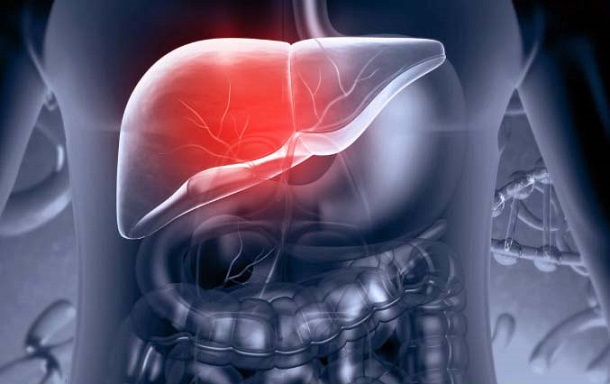Scientists Warn That COVID-19 Infection Found to Trigger New Autoimmune Liver Disorders
Nikhil Prasad Fact checked by:Thailand Medical News Team Oct 16, 2025 3 months, 4 weeks, 19 hours, 44 minutes ago
Medical News: New research from Wuxi, China reveals concerning link between COVID-19 and autoimmune liver disease
A new Chinese study has uncovered that coronavirus infection may trigger autoimmune liver disease (AILD) in some individuals. Researchers from the School of Health and Nursing at Wuxi Taihu University and the Department of Pathology at The Fifth People’s Hospital of Wuxi, affiliated with Jiangnan University, found that patients who developed liver problems after recovering from COVID-19 showed distinct immune and biochemical changes compared to typical autoimmune liver disease cases. This
Medical News report explores their findings in detail.
 Scientists Warn That COVID-19 Infection Found to Trigger New Autoimmune Liver Disorders
Autoimmune liver disease emerging after COVID-19
Scientists Warn That COVID-19 Infection Found to Trigger New Autoimmune Liver Disorders
Autoimmune liver disease emerging after COVID-19
The researchers compared two groups of patients: 19 who were previously diagnosed with autoimmune liver disease before the pandemic, and 7 who developed autoimmune liver disease shortly after recovering from COVID-19. All post-COVID cases appeared within one month of infection, raising strong suspicion that the coronavirus may have triggered an abnormal immune response attacking the liver.
These patients showed elevated levels of immunoglobulin M (IgM), a key immune protein, and a higher rate of antinuclear antibody (ANA) positivity — both markers of autoimmune activity. Additionally, calcium levels and average age were lower in the post-COVID-19 group, suggesting a potentially different biological mechanism at play.
Liver tissue shows inflammation and immune activation
Through detailed liver biopsies, scientists observed that while both groups showed the typical liver damage seen in autoimmune conditions, the post-COVID-19 patients exhibited extra features of acute inflammation. This included necrosis (cell death) in the liver lobules, infiltration of white blood cells, and increased presence of eosinophils — a sign of allergic or immune-driven reactions.
Immunohistochemical analysis revealed higher expression of the immune marker CD20, which is associated with overactive B cells that produce antibodies. Conversely, the MUM1 marker, linked with plasma cell activity, was lower in post-COVID patients. This indicates an early-stage, hyperactive immune process possibly set off by SARS-CoV-2.
COVID-19 may break immune tolerance leading to autoimmunity
The study highlights how SARS-CoV-2 infection could disrupt the body’s immune tolerance. The virus uses the ACE2 receptor, abundant in liver and bile duct cells, as its entry point. This direct invasion, combined with the immune system’s “molecular mimicry” — where viral proteins resemble the body’s own tissues — could confuse immune cells into attacking the liver.
Interestingly, similar post-viral autoimmune responses have been observed in infections such as Epstein–Barr and hepatitis C. The findings imply tha
t COVID-19 may act as a new environmental trigger for autoimmune liver disease in predisposed individuals.
Why this matters for long-term COVID survivors
Clinicians are being urged to monitor liver health closely in COVID-19 survivors, especially those showing symptoms like fatigue, jaundice, or itching. Early detection through ANA and immunoglobulin testing, followed by a liver biopsy if necessary, could prevent progression to cirrhosis or liver failure.
The study’s authors note that most of the post-COVID-19 AILD patients were middle-aged women — consistent with known autoimmune tendencies — but the disease appeared to progress more acutely than traditional cases.
Conclusion
This groundbreaking research adds to growing evidence that COVID-19 can cause long-lasting autoimmune complications beyond respiratory damage. It also emphasizes the importance of continued follow-up care for COVID-19 patients. Early recognition and treatment of autoimmune liver inflammation may be key to preventing irreversible organ damage. As the researchers stress, larger clinical studies are needed to understand how SARS-CoV-2 triggers such autoimmune reactions and to develop strategies for prevention and management.
The study findings were published in the peer reviewed Journal of Tropical Medicine (Wiley).
https://onlinelibrary.wiley.com/doi/10.1155/jotm/6675295
For the latest COVID-19 news, keep on logging to Thailand
Medical News.
Read Also:
https://www.thailandmedical.news/news/long-covid-linked-to-hidden-liver-damage-and-organ-risks
https://www.thailandmedical.news/news/breaking-news-german-study-finds-that-sars-cov-2-aggressively-kills-human-hepatocytes-and-damages-liver-tissues
https://www.thailandmedical.news/news/liver-stress-detected-in-mild-and-asymptomatic-omicron-cases
